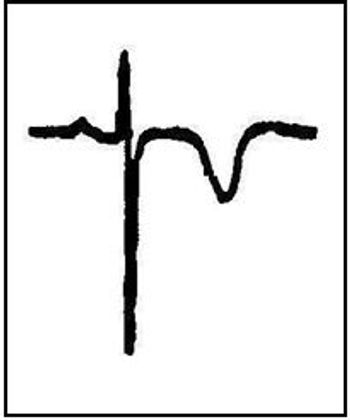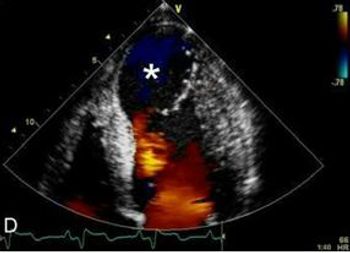
Overnight continuous positive airway pressure is still the gold standard treatment for OSA; but for those who cannot use CPAP, this effective new technology may be an option.

Overnight continuous positive airway pressure is still the gold standard treatment for OSA; but for those who cannot use CPAP, this effective new technology may be an option.

The ECG is frequently the initial diagnostic tool used by clinicians when evaluating patients with suspected acute coronary syndrome.

This study is the first to provide evidence that high levels of sedentary time, even among physically active men, places them at risk for heart failure.

In dialysis patients, anticoagulation for AF may be cause for clinical equipoise, regardless of bleeding risk score. New research, reported here, may begin to shift the balance.

Here, a concise review of the many clinical syndromes that can cause T-wave inversion with accompanying tracings.

Primary care physicians play a central role in preventing and managing cardiovascular disease. Take a look at the variety of presentations in this week's photo quiz to test your knowledge.

A new systematic review and meta-analysis of existing data supports what we've been telling patients for years: an apple (or 2) a day is certainly better than no apple at all.

Poor breakfast habits in adolescence predict the metabolic syndrome in adulthood, according to a recent study.

Men who are heavy drinkers show a faster cognitive decline compared with men who consume light to moderate amounts of alcohol.

Just when the health benefits of green tea seemed entrenched in mainstream thought, a study prompts caution for green-tea drinkers with hypertension. Details, here.


The need to address rising levels of obesity and related diseases, including cardiovascular disease, diabetes mellitus, and cancer, continues to grow.

Some interesting take home-points for your practice from recent studies and surveys: learn the details in this 5 question quiz.

A new study reveals the extent to which milk-processing procedures lower the drink's level of naturally occurring omega-3 fatty acids. More, here.


An observational study of patients with atrial fibrillation suggests that routine screening for depression at office visits may help augment treatment.

Where are we left after a flurry of hypertension publications as 2013 was ending and 2014 beginning? Let’s summarize our recent encounters with the available facts.

If you combine the simplified targets found in JNC 8 with the practical directions offered by the ASH 2013 update, will you actually reach the elusive destination (hypertension control)? Maybe. More, here.

I can see the target destinations on the JNC map, but I need a car and gas to get there.

Here: 9 recommendations that comprise the latest JNC 8 guidelines. Was it worth the wait?


Warning: The maximum daily dose of a single dispersible medication may itself contain more sodium than is recommended from all sources in a day.

A new study provides more evidence of important bidirectional relationships between AF and other cardiovascular comorbidities.

Risk factor control is essential to reduce the symptom burden and severity of atrial fibrillation. A new study finds that weight loss is a highly effective tool in an overall mitigation strategy.

A new study finds a lower incidence of AF in non-White races even though these groups have a higher risk of comorbidites that predispose to AF.